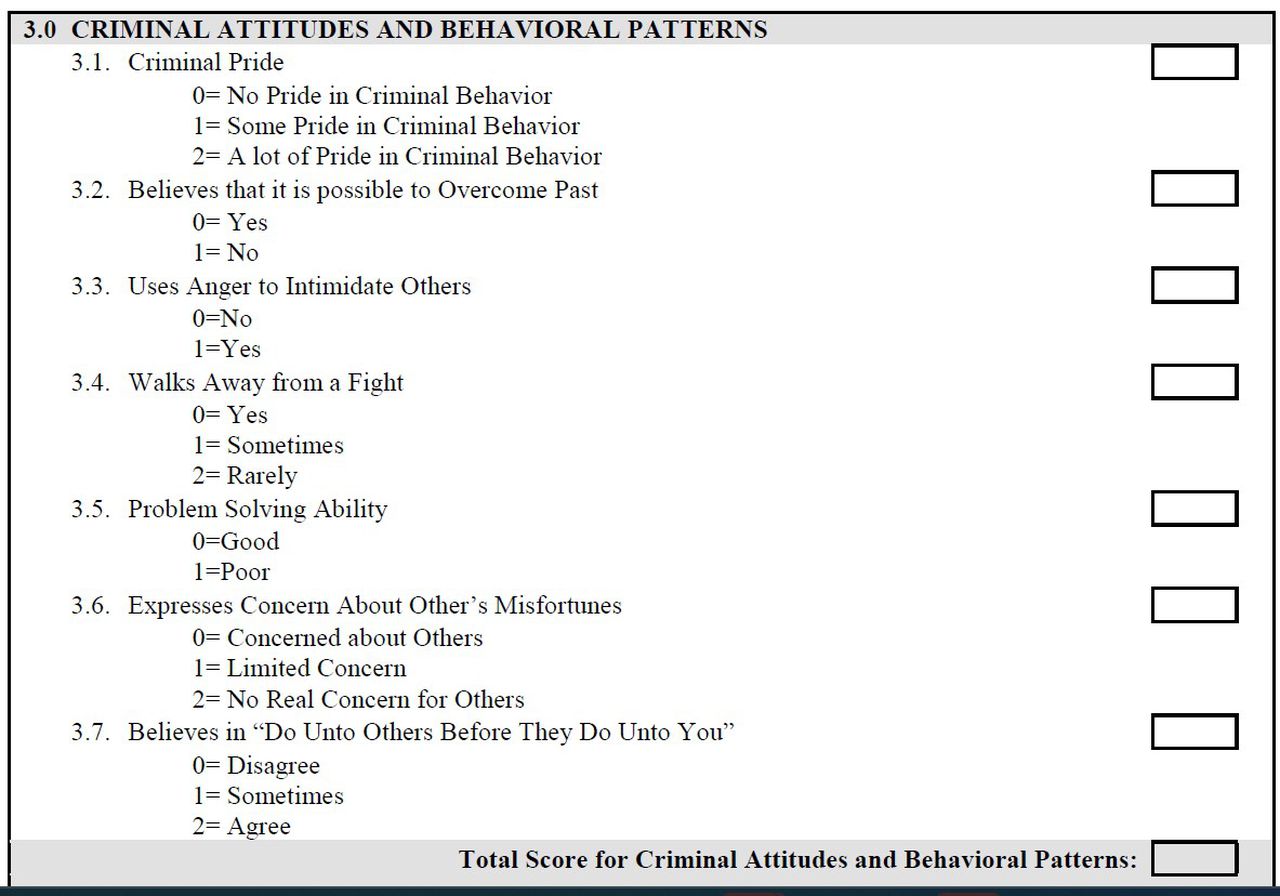Archibald: Are you a danger to society? Take the test
This is an opinion column.
Before convicted criminals are considered for parole they often undergo tests and assessments. To – you know – try to figure out if they’re likely to cause more trouble.
A piece of that in Alabama and elsewhere is the “re-entry tool” in the larger Ohio Risk Assessment System, which claims to measure, in a 30-to-45-minute appraisal, the likelihood a person will commit new crimes. It includes a section on criminal history and another on social bonds, which calculates your threat level by figuring out if you were ever suspended from school, or quit a job without having another one. (Guilty on both counts).
But let’s look at the third section: “criminal attitudes and behavioral patterns.” These are questions used to assess the future danger of incarcerated people. These are warning signs and red flags, roadmaps to risky behavior.
So take the test. Assess your own attitudes and behaviors. Examine your online presence or your demeanor at home. Look deep, at what makes you tick, and, while you’re at it, feel free to assess the people you admire and support politically or otherwise. We’ll start with the easy ones.
Related: Archibald: Even the dead can’t get paroled from Alabama prisons.
Related: Archibald: Alabama gives 6 minutes to consider life, death and freedom
The assessments and scoring are real, though paraphrased. The commentary is my own. There are a few parts, but this represents the entire section on criminal attitudes.
Question 1: Do you have criminal pride? (Be honest. Are you proud of punching that guy in the face or grabbing her by the … well you know?)
Answer:
No. (Add 0 points)
Well maybe a little. (Add 1 point)
Sure. I’m a tough guy. (Add 2 points)
Question 2: Do you believe it is possible to overcome the past? (The past? Your past? I’ll let you decide.)
Answer:
Yes. (Add 0 points)
No. (Add 1 point)
Question 3: Do you use anger to intimidate other people? (Hmm. Does that count emails and texts and tweets and congressional committees and the Alabama Legislature? Of course it does.)
Answer:
No. (Add 0 points)
Yes. (Add 1 point)
Question 4: Can you walk away from a fight? (Or are you afraid they’ll think you’re a chicken, or some kind of snowflake?)
Answer:
Yes. (Add 0 points)
Sometimes. (Add 1 point)
Rarely. (Add 2 points)
Question 5: Assess your problem solving ability. (I know, I know. It’s hard to trust yourself on this one. Maybe phone a friend.)
Answer:
Good. (Add 0 points)
Poor. (Add 1 point)
Question 6: Do you have concern over the misfortune of others? (I mean really. Look deep. Do you care what happens to them?)
Answer:
Yes, I do. (Add 0 points)
I have limited concerns about others. (Add 1 point)
I have no real concern for others. (Add 2 points)
Question 7: Do you believe in the philosophy “Do unto others before they do unto you?”
Answer:
Nope. I disagree. (Add 0 points)
Sometimes. (Add 1 point)
Heck yeah, I agree. (Add 2 points)
So there you go. If you scored 0-2, you are a low risk for future criminal behavior, according to the experts. If you scored 3-5, you are a medium risk. If you scored above that you are a threat, and must stay in your room without supper.
I’d tell you that if you flunked this assessment as an Alabama inmate you probably won’t be getting out on parole. But then, in a place like Alabama you’re not getting out anyway. This year, more than nine out of every 10 people eligible for parole have been denied release, regardless of assessment.
But this isn’t about them. Not right now. It’s a lot bigger than that.
Because if brazenness, hopelessness, poor decision making, anger, lack of empathy, pride in our own poor behavior and lashing out first are serious warning signs for criminal behavior, we need more than jails. We need a national assessment.
Not of our inmates, but of ourselves and the people who want to be our leaders. Of who we really are.
John Archibald is a Pulitzer Prize-winning columnist for AL.com.
The Ohio Risk Assessment System section on criminal attitude and behavioral patterns.
